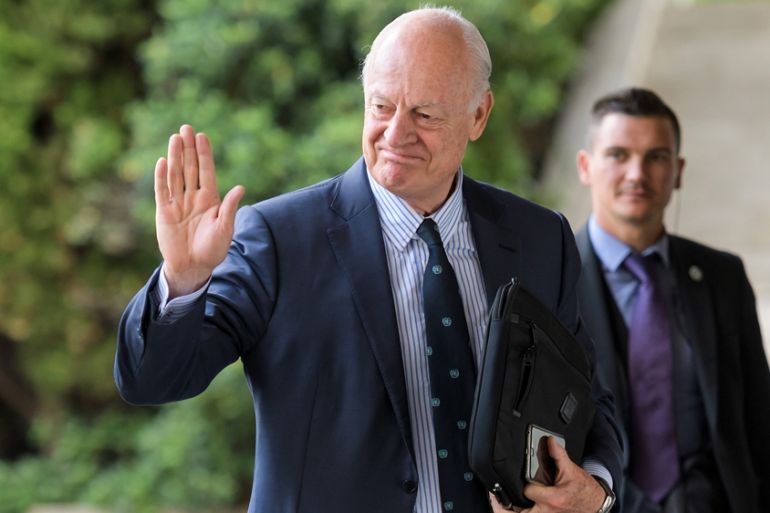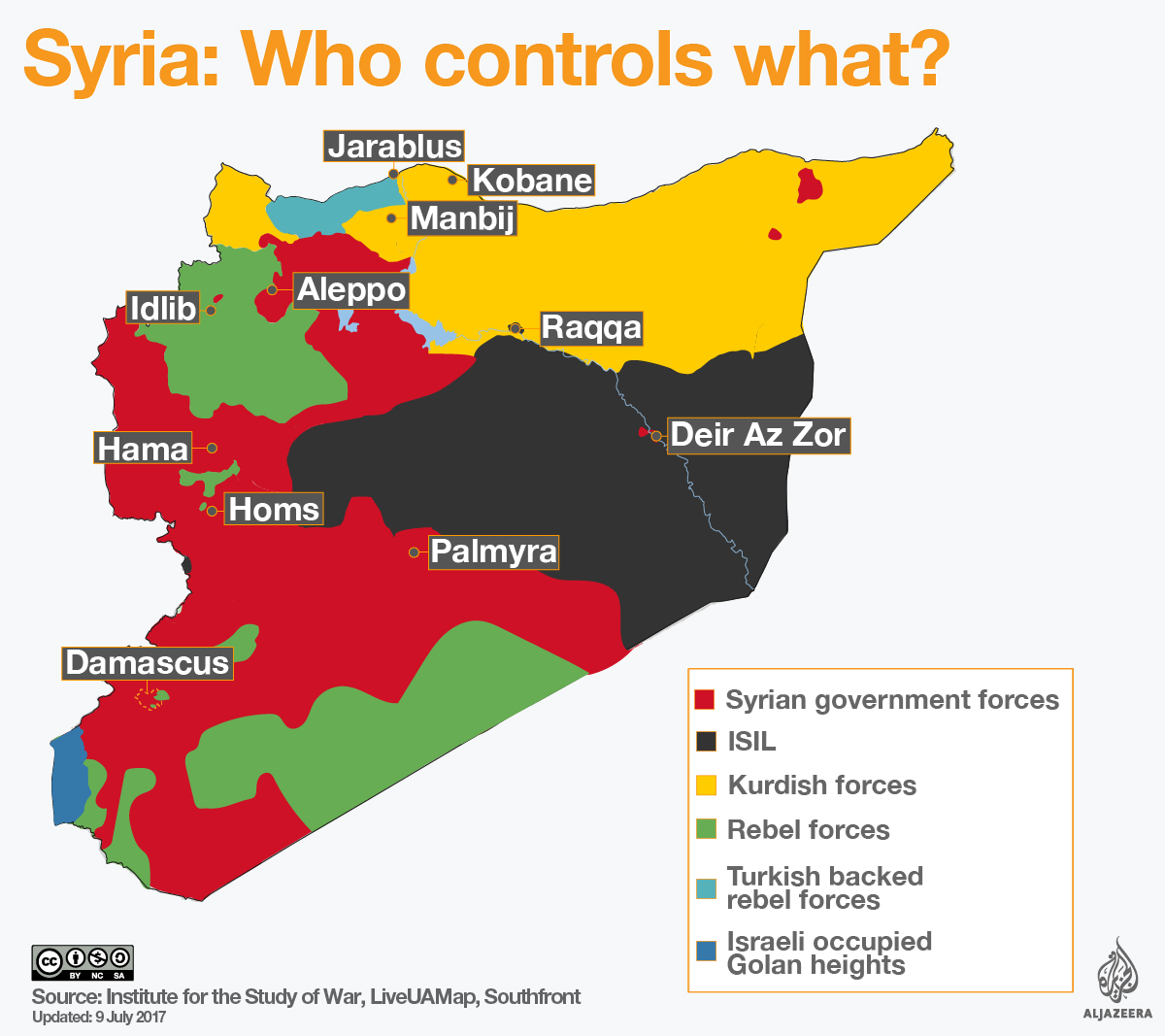Syria ceasefire holding as Geneva talks begin: UN envoy
Staffan de Mistura says he is not expecting breakthroughs in Geneva talks but ‘incremental developments’.

The UN’s special envoy for Syria has said that a US and Russia-brokered ceasefire in the country’s southwest was generally holding despite some “teething problems”, adding he hoped it would contribute positively to talks between the government and opposition.
Staffan de Mistura, speaking at a news conference in Geneva, said he was not expecting any breakthroughs but rather “some incremental developments”.
A new round of indirect talks that began on Monday is the seventh so far between Syrian government representatives and opposition leaders to try to wind down the country’s six-year-old civil war.
The start of the talks in Geneva coincided with the first full day of the ceasefire for southern Syria that was brokered last week by the United States, Russia and Jordan.
READ MORE: Syria’s ‘de-escalation zones’ explained
On the ground, opposition activist Ahmad al-Masalmeh told the Associated Press news agency that it was quiet in the city of Deraa, near the Jordan border.
The Britain-based Syrian Observatory for Human Rights monitoring group reported light shelling and bombardment in the city overnight.
The agreed-on ceasefire covers three provinces in southern Syria.
It is the first tangible outcome following months of strategy and diplomacy between the new US administration and Russia.
“We believe that de-escalation will be contributing to not only the talks in Geneva and in Astana, of course, but will also reassure the Syrian people that while we are talking the people are not going to die because of bombs,” de Mistura said.
He cautioned against de-escalation deals leading to eventual partition, saying they should be an interim measure only until an overall ceasefire and peace settlement can be found.
Russia, Iran and Turkey agreed in May to set up four “de-escalation zones” in Syria, although they have so far failed to agree details necessary to implement the plan.
![On the ground, opposition activist Ahmad al-Masalmeh told the Associated Press news agency that it was quiet in the city of Deraa [Reuters]](/wp-content/uploads/2017/07/9a2a071c43da406abc9feef7f401c915_18.jpeg)
Transitional period
In principle, the new round of Geneva negotiations will focus on four so-called “baskets”: a new constitution, governance, elections and combating “terrorism”.
Al Jazeera’s Sue Turton, reporting from Geneva, said one of the key areas the opposition is focused on is the transitional period, what Syrian governance will look like after the war. But the two sides are deadlocked on matters such as what will happen to the Syrian president.
“The spectre that is hanging over all of that is the fate of Bashar al-Assad. I think it is fair to say that this is one area where the two sides are still diametrically opposed – whether Assad should be allowed to stay or whether he should go,” she said.
The Geneva talks began in 2014, and have continued intermittently despite a dearth of results.
Since January, they have been increasingly overshadowed by the separate process organised by Russia, Iran and Turkey in the Kazakh capital Astana.
The Geneva talks are expected to last through the week.
